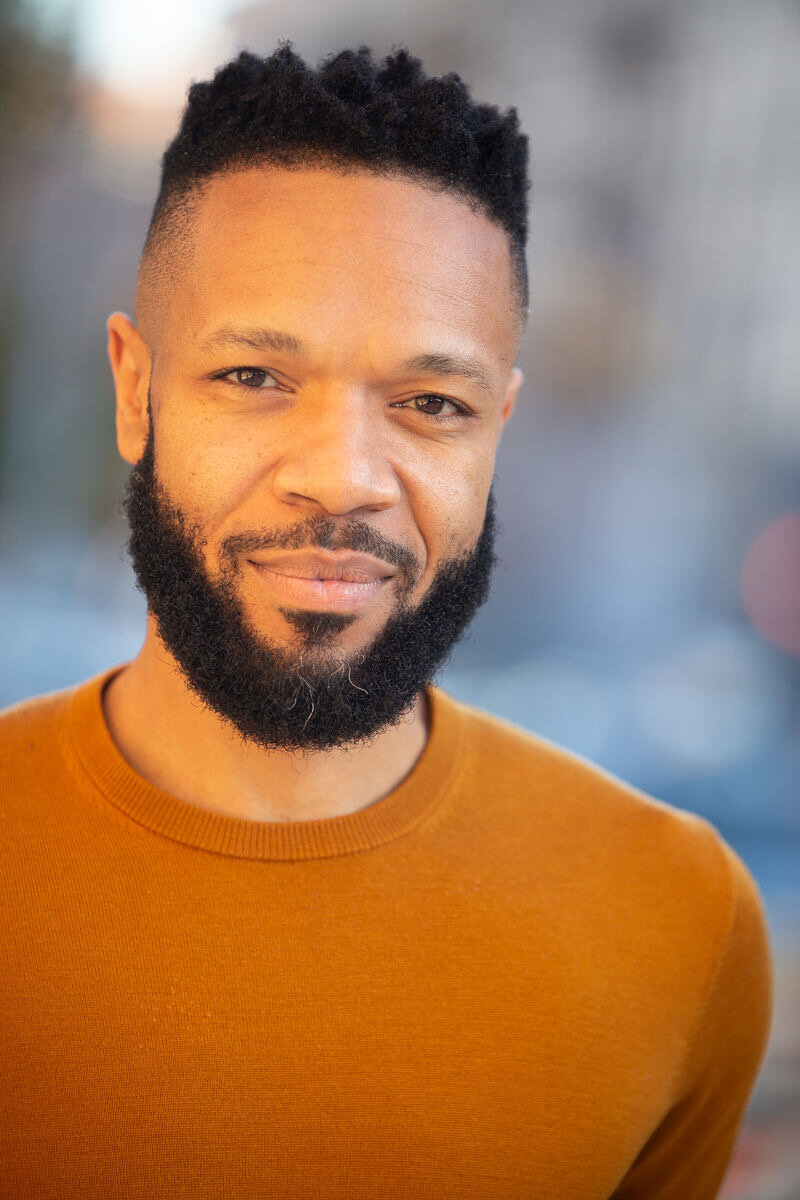Curly Who? ...Or a semi stream of consciousness thought process during a quarantine.
By Jason Veasey
What does a Black, Gay actor with a Bass-Baritone voice write about when he is asked to write an essay about his experience being a Black, Gay actor with a Bass-Baritone voice in the modern musical theater world?
What does said Black, Gay, Bass Baritone write about when he is temporarily back at his parents' house in Colorado because his gig got cancelled the day before tech on account of a global pandemic?
Well...he could write A LOT!
There are so many questions that have gone through my head in trying to figure out what to put on this page? A constant stream of consciousness that seems to go on for ever and ever.
What do I write about? DO I write about the time in college when a New York casting director told me that I'd make a great "Curly" in Oklahoma? And how that one comment gave me this surge of confidence that made me feel special. AND why did it make me feel special? Was it because I'd always longed to play Curly? No. Because nobody actually LONGS to play Curly. Curly is an asshole. I think it's because as a Black performer the validation that someone saw me as a good fit for White role made me feel "Legit". And if that's the case, then do I need to examine some other "dream roles" I used to covet? Why do I no longer covet them? Why do we as PoC get so upset when yet another revival of a classic White musical once again casts...White people? Why do we call out the band when one of us becomes the "first" to play a role even though it's still an understudy contract and not the actual eight shows a week? What about all the roles that are written FOR us? We have roles for us that should be considered dream roles. Why aren't they coveted? There a plenty of shows about the PoC experience that are well known and written by PoC! Dreamgirls for example..wait...nope, that's written by two white men. Once On This Island...yeah, two white people. Miss Saigon...White. Ragtime was...written by the same two white people that wrote Once On This Island. Damn. Yeah let's not follow that stream. It will only lead to a spiral.
So what do I write about? In a time where everyone in theater is out of work. Broadway is shut down. Like, ALL THE WAY DOWN. Hadestown down. Times is hard. Times. Is. Haaaaaaaaaaaaard. (see what I did there?)
Seriously, what does this pandemic mean for theater? For our world? What does it mean for us? And what does it mean for US? And by US I mean the folks who really know what, “All ethnicities are encouraged to attend," really means.
US.
Well, I think it means a few things. First a reset. Hopefully, this time allows us to really think about how we want to be a part of this industry and this art form moving forward. What are our artistic priorities? How do we actually get a seat at whatever table people keep talking about? How do we infuse ourselves into an art form/catalogue/industry that has inspired us and changed our lives that we now know wasn't necessarily built to inspire us or change our lives? How can our stories and roles be valued the way we value white stories? How and WHEN will we see ourselves as the bar to achieve.
Well I have an idea. We can start by really supporting, promoting, learning and engaging works of musical theater about People of Color WRITTEN by People of Color. Who better than ourselves can show the world exactly what we have to offer? Who can accurately bring the flavor that only we can bring that somehow seems to make people millions of dollars even when we aren't involved?
We can.
I know this is to be true because last summer, I got to have the thrilling experience of performing in a beautiful piece called A Strange Loop at Playwrights Horizons. A piece I had been supporting, promoting, learning and engaging with for the better part of seven years. Written by the gifted Michael R. Jackson.
I know this to be true because of watching my friend Dev Janki create Live & In Color. To watch him introduce the world to the Masi Asari's, Laiona Michelle's, Lee Summers' and Janet Noh's. To see performers of color finally get to play roles with all of their colors within their color in mind. To play parts they can covet and that others will as well. I know this to be true, because when I was on stage in A Strange Loop, being my Black, Gay, Bass-Baritone self; perfuming a role that showcased all of that...I had to think to myself "Who wants to play Curly? Who covets the role of Curly? I'm playing a dream role NOW. Curly...covet this!"
Jason Veasey is a New York based actor and singer who has been fortunate to do what he loves on stage and screen. Most notably on Broadway in The Lion King as well as the touring company. On Stage he was most recently seen in the critically acclaimed A Strange Loop at Playwrights Horizons. He’s also been seen at The Public Theater, Actors Theater of Louisville, The Denver Center and more! On the big screen he’s been seen in American Gangster. TV credits include Chicago Fire, High Maintenance and the upcoming Starling.
Twitter and Instagram: @veaseyville

